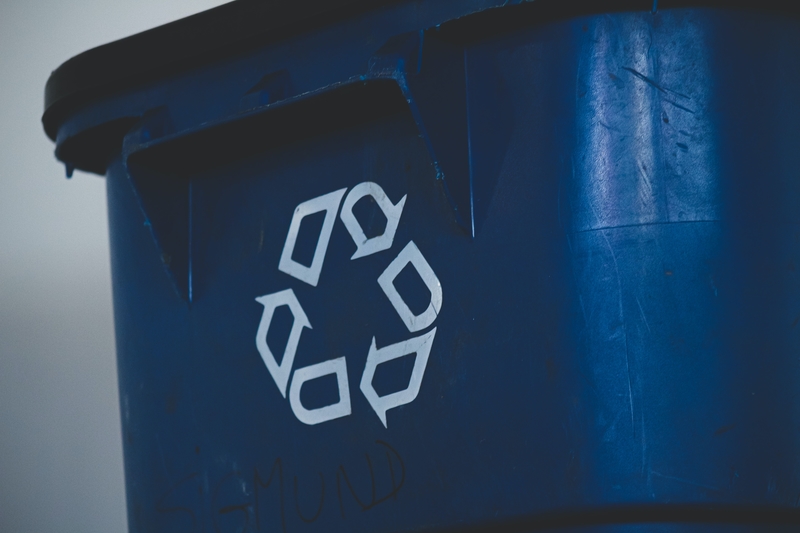If you’re like most business owners or managers, you value efficiency in your operations. At the same time, you pay close attention to your target market’s values and preferences.
Post-consumer recycled (PCR) packaging can help you satisfy both of these concerns. This type of recycled packaging supports environmental responsibility even as it helps you boost your bottom line by making your brand that much more attractive to today’s consumers.
Let’s take a look at what PCR packaging is all about, why it helps Planet Earth, and why it makes good business sense.
What is Post-Consumer Recycled Packaging?
Post-consumer recycled packaging involves the incorporation of materials that consumers have already used and discarded in recycling bins, such as paper, plastic, cardboard, and aluminum.
Your local recycling facility collects these materials, separates them by type, and then sells them to companies that melt the plastics down into small pellets. These pellets can then be molded into films of plastic resin that can see fresh use in new packages.
Is PCR Different From Recyclable & Biodegradable?
It’s important to understand some of the differences between PCR, recyclable, and biodegradable packaging materials., even though all three of these categories represent environmentally responsible, sustainable options.
By their very definition, recyclable materials can be reprocessed into new, viable products after they have been used. This generally applies to virgin plastics and other materials that have never assumed any previous form. PCR packaging already comes from previously used material; technically, it has already been recycled, so it can’t be recycled again.
Biodegradable packaging has one specific property that sets it apart: its ability to break down naturally into non-toxic component substances once consigned to a compost heap.
Compostable biodegradable packaging actually breaks down into water, carbon dioxide, and other base materials as quickly as paper — but only if consumers can send it to facilities that can break it down properly. By contrast, PCR packaging has already achieved the goal of sustainability before the consumer even purchases it, with no need for further reprocessing.
What Are the Environmental Advantages of PCR Packaging?
As you might imagine, any kind of packaging that makes use of previously-used materials can have a positive impact on the environment. Post-consumer recycled packaging is no exception. Here are just a few of the environmental advantages of PCR packaging.
- PCR packaging reduces your company’s carbon footprint. If you care about the size of your company’s carbon footprint, you’ll be delighted to learn that switching from virgin plastics to PCR plastics can reduce that carbon footprint by a stunning 60 percent.
- PCR packaging means less waste in landfills and water sources. Non-recyclable products create massive landfills that may contain soil toxins. They can also get into rivers and oceans, creating pollution and endangering wildlife. The adoption of PCR packaging can reduce your contribution to this problem.
- PCR packaging makes better use of petroleum sources. Our planet’s supplies of petroleum for plastics are limited. When you choose PCR packaging, you’re making those limited resources go farther.
What Are the Business Advantages of PCR Packaging?
In many cases, what’s good for the environment is also good for business, especially as awareness over environmental issues continues to grow among the general public. PCR packaging can be just as good for your business as it can for our world. Take the following potential advantages into consideration.
- PCR packaging appeals to eco-conscious consumers. The more attention consumers pay to issues of sustainability, the more heavily their purchasing decisions hinge on sustainable packaging. In fact, research shows that 70 percent of Millennials prioritize this issue when purchasing products. When you use PCR packaging, you automatically make your brand more appealing to that huge (and lucrative) target audience.
- PCR packaging keeps plastics in play. Consumers who care about the environment may automatically look down on plastic packaging as irresponsible or wasteful. Plastics made from PCR materials allow you to use this practical, attractive form of packaging without the negative stigma that might otherwise be attached to it.
- PCR packaging is high-quality packaging. All the environmental responsibility in the world won’t make a difference to your sales or your brand appeal if the packaging itself is substandard. Thankfully, PCR packaging can look just as nice and provide just as much protection for its contents (including protection against moisture, UV, and oxygen) as more wasteful packaging products.
Why Choose Copious Bags for Your PCR Packaging Needs?
Now that you understand the value and benefits of PCR packaging, you have more reason than ever to use Copious Bags as your source for flexible packaging.
We’re proud to feature PCR materials in our line of stand up pouches (we can also provide you with frosted and clear pouches made from 100-percent recyclable plastics).
The fact that our pouches are resealable and reusable by consumers makes them even more valuable in terms of sustainability.
Browse our range of elegant, airtight, cost-effective stand up bags today — and discover just how smart a choice Copious Bags can prove for your business!


